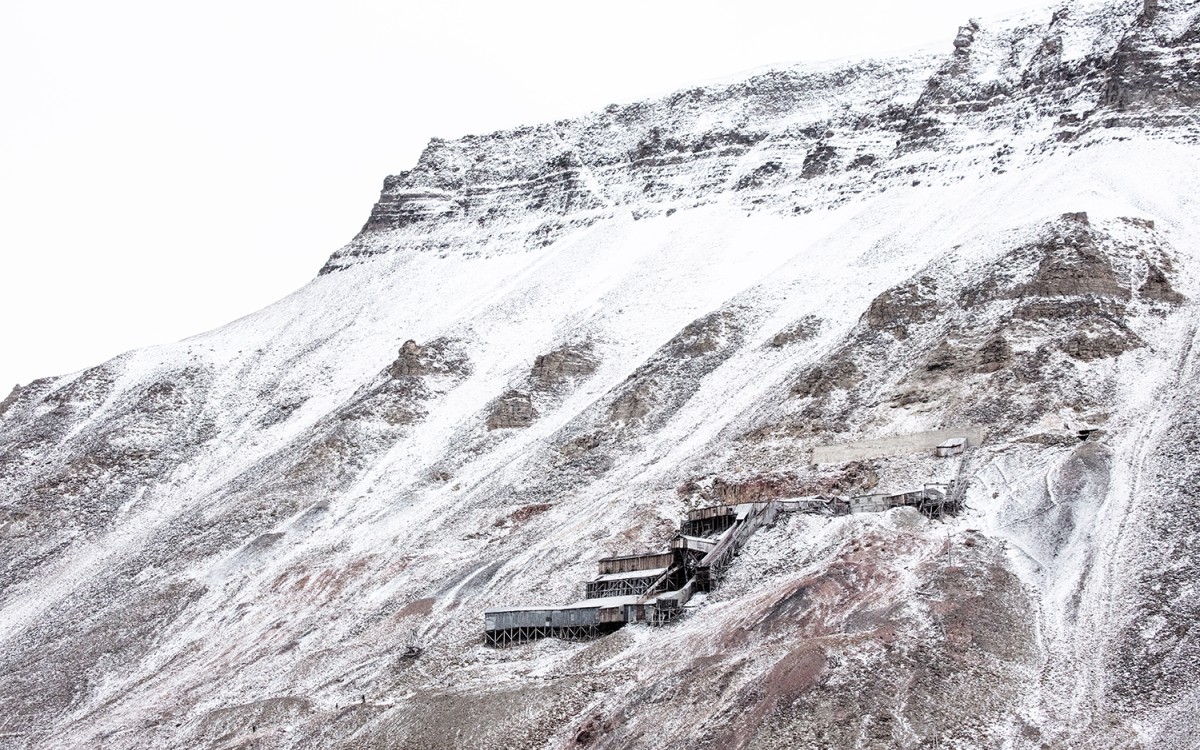Transition from coal brought dramatic changes

Within a few years, Svalbard went from being a society based on coal production to giving tourism, education and research the main roles. Can the island in the north inspire other communities to phase out carbon-intensive power production?
The research project Tipping+, funded by the EU, was recently concluded, after three and a half years of searching for so-called "positive tipping points" in 17 countries in Europe, North America and Asia.
What is a "positive tipping point"?
– Within social research, a tipping point is events or measures that lead to a profound change in how a society functions or relates to the material world, says senior researcher Siri Veland, formerly of Nordland Research Institute (NRI), but now an employee at NORCE.
– A positive tipping point is about events or measures that get coal- and carbon-intensive regions to switch to clean energy.
Tipping+ looked at two examples in Norway: Lofoten and Svalbard. Veland was involved in the latter.
Served as a showcase
Svalbard appeared as an exciting and special case. Unlike almost everywhere else in the world, no one is born or lives as a pensioner on this archipelago in the Arctic Ocean. The stay on Svalbard is always temporary, meaning no population group has a long historical and cultural connection to the island.
– This means that the danger of populism in the wake of political changes is much less than, for example, mining communities in Poland or the Czech Republic, says Veland.
– Nevertheless, since the Svalbard Treaty of 1920, coal mining has maintained a Norwegian presence on Svalbard. When the state decided to close down the coal mines, Svalbard served as a showcase for what happens to a society when the coal mines are closed, she says.
And the changes that occurred were more dramatic than the researchers had imagined.
Affected democracy
In a few years, Svalbard went from being a male-dominated mining community where everyone knew each other, to becoming a society with a large degree of transience, with a greater balance between women and men, and a more international and seasonal workforce.
– Local residents describe the changes as dramatic. They no longer recognized each other. People started locking houses and cars, says Veland.
The changes also had political effects.
– The government began to see that demographic change affected the voting population. They changed the rules for voting rights so that you must have lived on the mainland for at least three years before you can vote, says Veland.
– This led to several people losing the right to vote. Demonstrations and political reactions arose. The Green Party no longer had enough members to stand for election after the rule changes.
Society was thus significantly changed thanks to government regulation. Can the decision to stop coal mining on Svalbard be called a tipping point?

Builds mines, demolishes windmills
Yes, says Siri Veland, but she is unsure whether we can talk about a positive tipping point.
– We have stopped using coal in Svalbard, meaning that box can be ticked. At the same time, Svalbard has not switched to clean energy, now it is diesel that produces electricity for Longyearbyen, she points out.
The Tipping+ project has revealed that coal- and carbon-intensive regions that produce oil and lignite, do not easily transition to green energy. In contrast to the hard coal that dominates in Svalbard, lignite is much cheaper to produce, but pollutes more.
– Hard coal, which is expensive to extract, is being phased out, while lignite mines continue. Outside Europe, we have seen examples of windmills being torn down to make room for lignite mines, says Veland.
– And Norway has not stopped producing oil.
Few options in the Arctic
Nevertheless, some stories give hope. A region in Spain went from being completely based on coal to converting to a green industry.
– The coal-fired power plant - known colloquially as "The Two Towers" - has been demolished and they are in the process of building up renewable power. It shows that positive tipping points can be adopted politically, if it is followed up with financial instruments that work, such as the EU's Green Transition package in this case, says Veland.
– But what will happen in Svalbard is difficult to say. What alternatives do you have up there in the Arctic? It will be exciting to follow, she says.
Surprising Lofoten
Lofoten was also a special case in the Tipping+ project. As is well known, the region stopped oil extraction before it had begun and never became a carbon-intensive society.
– The question was whether the successful resistance struggle against oil exploration in Lofoten could be defined as a positive tipping point, from which other societies can learn, says senior researcher Anna G. Sveinsdóttir at NRI.
In collaboration with colleague Brigt Dale, Sveinsdóttir addressed the 20-year-long battle between opponents and supporters of oil exploration in Lofoten, Vesterålen and Senja. The researchers concluded that the outcome was surprising.
– That there does not appear to be a political majority in the foreseeable future to open Lofoten to oil extraction, is surprising in a country as economically dependent on petroleum production as Norway, says Sveinsdóttir.
– The Lofoten case shows how it is possible to establish an alternative vision of the future based on green energy and that a strong grassroots commitment can produce results. This is an important insight for other societies that want to bet on a green future.


